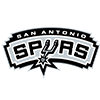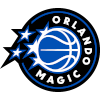So, the play-offs are literally just around the corner. You've been watching hockey pretty regularly and think you know a lot about the subject. Some guy in the office – probably that new Inside Sales Rep, Investment Analyst or the loudmouth IT guy down the hall – has invited you to participate in the time honored "Play-off Pool". You grin smugly, as you think that your experience gives you a leg up on the competition. After all, you know who plays on the second line in Phoenix; you can also name the top scoring rookies in the league – and the teams they play on – and you think this knowledge gives you an edge.
It doesn't.
The play-offs are a unique beast. It's the great equalizer amongst the masses, making experts out of fanatic and amateur alike.
We've been giving you tips the whole year on how to get a leg up on the rest of the competitors in your fantasy pool – now, let us help you win the play-off pool, and gain the respect of your peers.
Consider the odds
Play-off pools predominantly come in two flavors: the draft-based pool, and the pick-based pool.
Draft-pools operate line miniature versions of your typical regular season pool, and are almost always low in entrants. Typically between 6 and 16 people participate with a high entry fee per person.
Pick-pools are the easiest to operate for large groups of people – typically, there's a sign-up sheet with a number of boxes available. In each box, you select one of a number of players (typically, five or six). You tick off each player you want and give the sheet back to the organizer with the entry fee. These types of pools can run with huge numbers of people – the one we run in our office has over 50 participants and over 150 entries.
Why does this matter? Your strategy should change based on the competition and on the rules of the league. The draft-pool offers a small base of competitors with each player selected only being held once. The pick-pool offers a large base of competitors, and many people could have similar (or identical) entries.
First, do your homework
Before you enter any pool, you should do your predictions separately. Make sure you know all the matchups so that you can make the proper decisions on who you think will come out of each series. Take those series, pick a winner, then move to the second round and pick those winners, then the Final Four, and finally the Stanley Cup Finals.
Write in your predictions how many games you think each series will run. Detroit in 6, Boston in 5, etc. Take every team in your tree and add up the number of games they will play through the play-offs. This is now your cheat sheet.
The most important predictor for play-off pool success by any player is the number of games played. Now, take this number, and for each player on each team, make a ratio of games in the play-offs (expected) to games in the regular season. Multiply their season totals by this ratio to get your own personalized prediction of their post-season performance. It's not by any means an exact science, but at least you'll be consistent in your expectations.
Draft pools: Pick smart
GMs in this genre will often take one of two rigid approaches: picking the best player available, regardless of team, or picking a player from the best team available, regardless of skill. Neither approach is optimal.
Having been successful a number of times, the best approach we've found is to get a blend of both – ideally 60-70% of your players from teams you have scheduled to go to the final four, but also the remainder from the teams that are expected to only go two rounds deep. For example, picks like Sidney Crosby and Jonathan Toews are no-brainers that really don't need explaining; players like Zach Parise or Brandon Dubinsky are ideal to pick up because they're likely to be available in rounds where others are picking third- or fourth-line players from Boston or St. Louis.
If you're in a smaller pool, consider this strategy – pick the best player available on the board for the first five rounds. Rather than focusing on your pick, keep track of everybody else's strategies. Gauge who they're taking. Then, adopt the opposite strategy to the room; if most people are going best-player, fill up on one team (like Boston), or vice versa.
Pick pools: All your eggs in one basket (or pick the underdog)
When it comes to pick pools, there are two optimum strategies.
If you're in a smaller pool – say, under 50 entries – there's typically enough variance in that amount that you can safely pick everybody possible from your Stanley Cup Final or Final Four teams. Go through the boxes, and select everybody possible from your Cup winner. Then, from your Cup finalist. Then the other two Conference finalists. Any boxes left should go to the player who plays the most games according to your "homework".
If you're in a big pool, your odds of winning are much better betting on an underdog. Let's say you're in a pool with 500 entries – a monstrously large pool. Most of those entries will be based on your typical favorites in the Final – Boston or Pittsburgh vs. Anaheim or St. Louis. The chances of you selecting the correct combination over the other 500 entrants is, well, probably close to 0.2%. As it stands at the time of writing, the Dallas Stars have 50-1 odds in Vegas. That's 2%. While everybody is busy taking St. Louis players, if you take all Dallas players, and they manage to upset the Blues in the first round, you're likely to at least be in the money, if not win the whole thing.
The last time we won a big pick pool, we bet hard on New Jersey and Phoenix to upset their respective series in 2011-2012. Because the Devils went to the finals, and Phoenix, the semi-finals, we managed to win a pool with several hundred entrants. We didn't pick them because we thought they were going to win, but because they had a chance to win, and most people weren't going to pick them.
Our predictions
So, all this strategy talk is good, but what are our predictions for this year:
The first round matchups are still largely in the air right now, and not likely to be set until Sunday night, so these predictions may change based on matchup changes:
West:
• Colorado (C1) v. Minnesota (W1) – Colorado wins in 6 - Minnesota cannot contain the Avs' speed.
• St. Louis (C2) v. Chicago (C3) – St. Louis wins in 5 - Chicago doesn't fully recover from the key injuries of Toews and Kane.
• Anaheim (P1) v. Dallas (W2) – Anaheim wins in 6 - Dallas holds it's own, but Anaheim has too many weapons.
• San Jose (P2) v. Los Angeles (P3) – San Jose wins in 6 - San Jose is too hot offensively for LA to shut down.
• Colorado (C1) v. St. Louis (C2) – St. Louis wins in 7 - Colorado proves its mettle, but St. Louis is too disciplined.
• Anaheim (P1) v. San Jose (P2) – San Jose wins in 6 - San Jose looks overwhelming; Anaheim gets outclassed.
• St. Louis (C2) v. San Jose (P2) – St. Louis wins in 7 - Ryan Miller steals the series for St. Louis.
East:
• Boston (A1) v. Detroit (W2) – Boston wins in 6 - Boston is a steamroller, and Detroit is in their way.
• Tampa Bay (A2) v. Montreal (A3) – Montreal wins in 7 - Tampa Bay loses a close one; the difference is Carey Price.
• Pittsburgh (M1) v. Columbus (W1) – Columbus wins in 6 - The biggest upset of the year: Columbus outmuscles the Penguins.
• New York (M2) v. Philadelphia (M3) – Philadelphia wins in 5 - Henrik Lundqvist doesn't find his mojo and the Flyers outwork the Rangers.
• Boston (A1) v. Montreal (A3) – Boston wins in 5 - A long series beforehand wears out the Habs, and Boston is too rough to handle.
• Philadelphia (M3) v. Columbus (W1) – Philadelphia wins in 6 - Both play a similar style of game, but Philly is just too skilled and rough for the Jackets.
• Boston (A1) v. Philadelphia (M3) – Boston wins in 7* - This is our toss-up matchup and the series of the year. Both teams bleed for it. We pick Boston by a hair.
Cup Finals
• Boston (A1) v. St. Louis (C2) – St. Louis wins in 6 - After watching the Boston/Philly series, it's little wonder there's nothing left in the tank. St. Louis handily clubs the Bruins in five, in a rather disappointing series, given the quality of the hockey leading to this point.
Have a great play-off season – pick smart, and we'll see you at the draft!






































